January always sneaks up on me. It shouldn’t. I mean, my Foundations/Essentials boys will have had six weeks off. Six!! Granted, my Challenge student had fewer weeks off, with an adjusted schedule due to rescheduled classes (he had three community days at the very end, on December 1, 5, and 8), and work to complete over break which he has managed to spread out over the whole break. And we’ll be on a big family vacation during the first week back (wahoo!!), so Levi also needs to be ahead in a few subjects.
We also have Levi’s 13th birthday to celebrate on January 1st before we head to Disneyland a couple days later. So, you see, it’s difficult to imagine getting back into the swing of things on January 12th (a week late).
But come it must, and we’ll be ready.
History
We continue with United States history.
I posted a lengthy book list at this link, which includes history, literature, speeches and poetry memory work, and geography through week 24.
Geography
Again, we continue with U.S. geography.
My favorite two free online resources are:
:: Sheppard Software geography games (fantastic for U.S. and World geography in Foundations and Challenge A, and includes geographical features as well as states and capitals)…
:: and Draw the USA at Mahalo (video tutorial)
Science
We move on to chemistry for weeks 13-18 and general science topics for weeks 19-24.
[Y’all should know that those last 6 weeks of science memory work are a sneak peek and early preparation for what your student will be learning in the rhetoric strand in Challenge A, which includes the memorization of 57 similar sentences! The first 12 weeks of human anatomy memory work in Foundations cycle 3 help prepare the student for the body systems memory work encountered in the second semester of Challenge A, as well.]
Chemistry:
:: TED-Ed launches an interactive periodic table with a video for every element
:: The New Periodic Table Song. (Too fast for you? Try the slow version with captions.)
:: They Might Be Giants: "Meet the Elements"
:: Memorize the first 20 elements of the periodic table using mental imagery.
:: Elements and Atoms by Khan Academy
If you’re like me, and no subject is complete without a few books to peruse…
:: The Elements: A Visual Exploration of Every Known Atom in the Universe is a spectacular book that should hold the attention of kids and adults alike. Each visually-stunning two-page spread explores a single element, including current uses. Check out the “see inside” feature at Amazon, and you’ll see what I mean. Highly recommended. I’m adding Molecules: The Elements and the Architecture of Everything to our collection, as well.
:: The Periodic Table: Elements with Style! and Basher Science: Chemistry: Getting a Big Reaction. My boys are huge fans of all the Basher Series. These books are highly entertaining and perfect for boys who would rather be reading comics. Each element or concept is defined using personification (and quirky illustrations). For example:
“Alloy. The Man of Steel. I give a backbone to spineless metals. I make them fit for purpose with properties that better suit their uses. Without me, “supermetal” would be, well, just plain old Metal…”
“Radium. I am the heaviest of the gang and a completely captivating character. I shine in any social situation. Bright and luminescent…I’m a real stunner…”
“Lead…Over the years, I’ve gained a bad rap. People say that I build up in bones as a slow poison and that I have damaged children’s development. It’s true that I have an unfortunate ability to slip easily into the food chain—from pipes and cookware, leaded gasoline, and paints to fishermen’s weights. I have also been blamed for ending the ancient Roman civilization. Not fair! These days, I am closely regulated. But I am still used as a shield against x-rays, for roofing, and in stained glass.”
:: The Mystery of the Periodic Table. Looking for a good narrative science read-aloud? Or an interesting history of science chapter book for independent readers? We have enjoyed all of the Living History Library, particularly the books by Jeanne Bendick, so The Mystery of the Periodic Table is on our list. (Levi read it independently a couple years ago and enjoyed it.)
:: DK Eyewitness Books: Chemistry is a good choice for general chemistry information in the visually-attractive (but non-narrative) style of DK reference works—perfect for researching a specific topic or for a child who enjoys poring over books with pictures and detailed captions.
:: Exploring the World of Chemistry: From Ancient Metals to High-Speed Computers by John Tiner is a Chemisty course written in narrative style from a biblical perspective. (Memoria Press uses this series in 5th-8th grades.)
Latin
The following is a video set to my friend (and son’s tutor) Mindy Pickens’s rendition of John 1:1-7 in Latin from the Vulgate. (We use the same tune to sing the verses in English.)
Fine Arts
Great Artists:
Grandma Moses, Norman Rockwell, Georgia O’Keefe, N.C. Wyeth, Lichtenstein, and Jim Davis
:: Roy Lichtenstein (Getting to Know the World's Greatest Artists). I’ve purchased the books by Mike Venezia that correspond with the above artist. I love his style. Entertaining (but thorough) biographical and historical information paired with hilarious illustrations and the artist’s work along with period art and photographs. My boys LOVE them.
:: Grandma Moses (Getting to Know the World's Greatest Artists). [I am also purchasing this version of The Night Before Christmas illustrated by Grandma Moses. It will be a wonderful addition to Christmas book collection.]
:: Norman Rockwell (Getting to Know the World's Greatest Artists) [I’m leaving out my Norman Rockwell's Christmas Book until after we’re through learning about the artist.]
:: Norman Rockwell: Storyteller With A Brush
:: Georgia O'Keeffe (Getting to Know the World's Greatest Artists)
:: N.C. Wyeth's Pilgrims. We have several books illustrated by N.C. Wyeth, but this one is a lovely picture book example of his work.
:: 20 Years & Still Kicking! Garfield's Twentieth Anniversary Collection. We may have to add How to Draw Garfield and Friends (Learn to Draw), as well!
Composers:
[Romantic and Modern periods] Tchaikovsky, Debussy, Stravinsky
:: My most favorite free online resource is far and away Classics for Kids. Many composers are featured (including all three of this cycle’s composers). Click on the composer’s name for biographical information. Then click the top left (green) option “View past Classics for Kids shows about _________.” The shows are radio-style with narration and music. Some are about the composer. Some are about a specific piece of music. Often there are coordinating activity sheets you can print. [These are the options for Tchaikovsky.]
:: Story of the Orchestra : Listen While You Learn About the Instruments, the Music and the Composers Who Wrote the Music! If you are wanting to purchase the single best resource for composers and instruments for elementary students that will carry you through all 3 cycles of Classical Conversations Foundations composers and instruments, this book is my highest recommendation. The first half of the book covers 15 different composers in chronological order as well as a page on each period (Baroque, Classical, Romantic, and Modern). All three of cycle 3 composers are covered (and two each of the previous cycle’s composers). The biographical information is fairly short, and the illustrations are entertaining. The second half of the book covers the instruments, divided by sections of the orchestra. The accompanying CD includes short tracks for each composer and instrument.
:: Igor Stravinsky (Getting to Know the World's Greatest Composers). Again, my boys devour Mike Venezia’s biography series. We own a plethora of composers, artist, presidents, and inventors, and the boys immediately sit down to read them if I leave them out. Venezia uses a combination of hilarious illustrations and period photographs and art to complement his generous (but child-friendly) biographical information. Very informative and entertaining. Highly recommended.
:: Peter Tchaikovsky (Getting to Know the World's Greatest Composers). I just wish Mike Venezia would write one about Debussy!
:: Tchaikovsky Discovers America. My kids adore all of the Classical Kids recordings. They are radio-style full-cast stories with music. I highly recommend the whole collection.
Instruments of the Orchestra:
:: Children's Classics - Prokofiev: Peter & The Wolf / Saint-Saens: Carnival of the Animals / Britten: Young Person's Guide to the Orchestra (CD). These three recordings are essential to a child’s cultural literacy. [This animated version of Peter and the Wolf is stunning if a tad dark.]
:: The Story of the Orchestra (details above)
:: Zin! Zin! Zin! A Violin. A delightful picture book for younger elementary students.
:: The Philharmonic Gets Dressed. This is a charming, unexpected book. Just for fun.


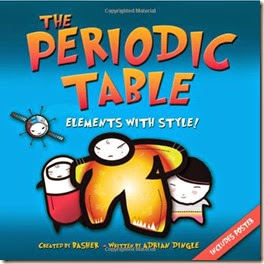


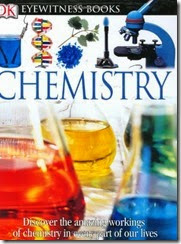

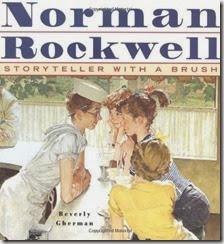
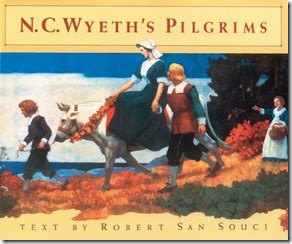
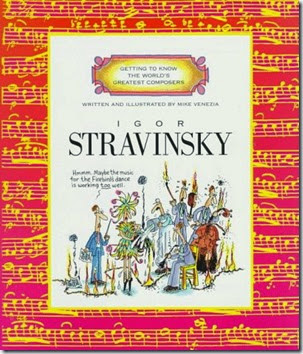
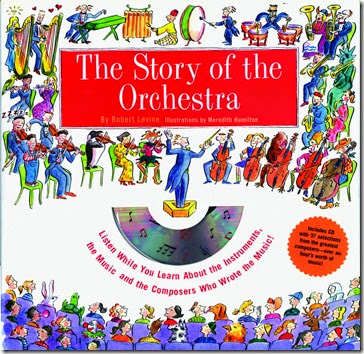

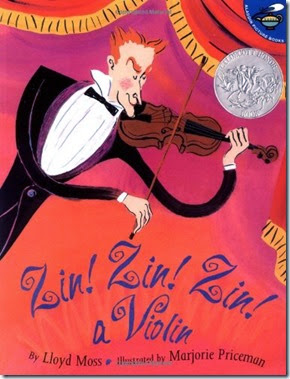
3 comments:
Thank you for the great resources! I am always ready for January... my boys not so much! :-)
There are some fun resources here; thank you for sharing what you gathered up!
Ritsumei
We enjoyed watching the videos! And several of those books I used when I taught chemistry to 5th grade. Fun to see them again.
Post a Comment